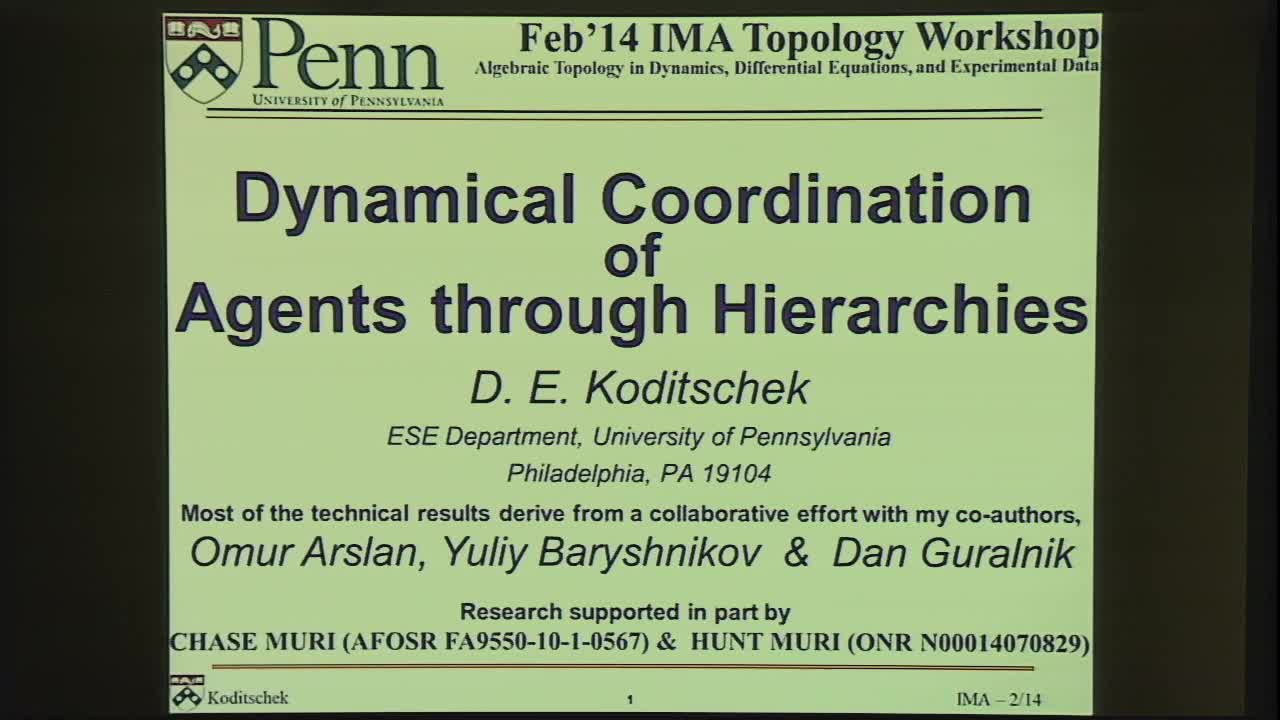Dynamical Coordination of Agents through Hierarchies
Presenter
February 10, 2014
Keywords:
- Clustering
MSC:
- 91C20
Abstract
Hierarchical clustering is a well-known and widely used method of unsupervised data mining and pattern analysis. Less attention has been paid its potential role in specifying and controlling the coordination of swarms of actively controlled particles. Nevertheless, the near ubiquity of hierarchical command structure in human organizations suggests the potential value of formalizing this “relaxed” but “organized “ mode of large group coordination and control. This talk will present a centralized hybrid dynamical controller guaranteed to bring a collection of n distinct, completely actuated particles in Euclidean d-space to a configuration that satisfies an arbitrarily specified binary proximity hierarchy from almost any initial configuration. The insights from that construction suggest approaches to variants that might be implemented in a distributed fashion without loss of theoretical guarantees. The talk will conclude with speculative remarks that return to the more familiar setting of hierarchical clustering for pattern analysis. Specifically, it is intriguing to consider the potential for re-interpreting this control framework as offering a “reactive data mining” approach to online active sensor management, for example, applied to problems of real-time anomaly detection or situational awareness.
Acknowledgements: This research is supported in part by the US Air Force Office of Scientific Research under the CHASE MURI, AFOSR MURI FA9550-10-1-0567. The work described results from a collaborative effort with my co-authors, Omur Arslan, Yuliy Baryshnikov, and Dan Guralnik.
